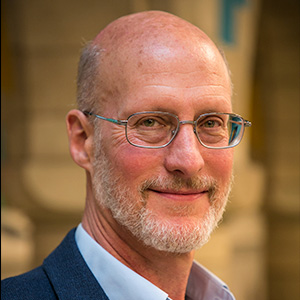Commentary on Acts 3:1-10
In last week’s reading, Jesus promises that after he departs, God will send the Holy Spirit upon the disciples, and they will become “witnesses.” That happens in Acts 2 (see particularly 2:40). The Spirit falls on believers at Pentecost, manifesting a number of extraordinary signs, most notably the ability to speak in different languages. Jews from all over the world, in Jerusalem for the feast of Pentecost, hear these Galileans praising God in their native languages.
Peter jumps in to interpret what is happening for the crowd. He straightforwardly interprets these signs of the Spirit through prophetic words from Joel. Joel ties the sending of the Spirit to the advent of God’s salvation. Peter builds on this by pointing to the death of Jesus and his subsequent resurrection. Peter interprets these events through Psalms 16 and 110, concluding, “Therefore let the entire house of Israel know with certainty that God has made this Jesus, whom you crucified, both Lord and Messiah” (Acts 2:36).
Faced with this assertion underwritten by the powerful signs of the Spirit, the crowd asks the obvious question: “What should we do?” The answer is “repent,” and be baptized in the name of Christ. Those who do this will receive the same Spirit that the disciples are manifesting. Acts 2:41 indicates that 3,000 people respond to Peter and are baptized. They subsequently devote themselves to the teaching of the apostles and to a form of common life, sharing food, and praying.
The end of chapter 2 summarizes things: This large group is captivated by the work of the Spirit through the apostles. They share all their goods, selling things to make sure the needs of all are met; they focus their public activities in the Temple, and their private moments in each other’s homes. They are well thought of by people, and God increases their numbers.
The reading from Acts 3 begins with Peter and John on their way to the Temple. Luke further identifies this as 3:00 in the afternoon (see also Acts 10:3). Psalm 55:17 and Daniel 6:10 refer to a practice of thrice-daily prayer (the third, sixth, and ninth hours). This reinforces the point that these first followers of Jesus did not see any inherent conflict between their convictions about Jesus, their reception of the Spirit, and their continued practice of Judaism. Obviously, things became more complicated and conflicted later. At this point, however, Acts presents Peter’s and John’s actions as something one would expect.
We learn that a man who was unable to walk was brought to the “Beautiful Gate” of the Temple on a daily basis to ask for alms. One can assume that this man’s requests must have been effective. Otherwise, it is hard to imagine someone (several people?) carrying him to this gate daily. This man treats Peter and John as he would anyone else: he asks for alms. The Greek word here echoes the word for “mercy.”
Peter and John fix their gaze on him. They see him. This seems important. Even when we might give to someone who asks for money, it is easy not to truly see the person who is asking. We generally prefer things this way as it removes the need for any deeper connection than an exchange of money. Indeed, the one doing the asking also directs his attention to Peter and John. There is connection and expectation.
That expectation must be crushed when Peter announces he does not have any silver or gold. Peter does, however, offer the power that has been given to him through the Spirit, reenacting the works of Jesus. Like Peter and the other disciples, this man, too, becomes a witness, going with Peter and John into the Temple and praising God.
Acts seems most interested in showing that the power displayed by Peter and John is tied to being Jesus’ disciples. Throughout Acts the followers of Jesus demonstrate great deeds of power. They also confront those who either offer alternative sources of power or manifest the desire to co-opt the power the disciples display for their own benefit.
It is worth remembering that in the first century, power tends to attract wealth. In our world, wealth tends to attract power. Acts is determined to show both that the power displayed in the words and deeds of the disciples has its source in Jesus and that it is not to be used for personal gain. Rather, it tends to bring hardship and opposition upon the disciples. These, too, become occasions for further witness by the disciples.
This story helps establish the continuity between the Spirit-soaked ministry of Jesus and the Spirit-empowered work of his followers after Jesus has ascended into the heavens. Perhaps for some contemporary readers, it raises questions about whether the Spirit that worked powerfully in Acts continues to work in believers today.
However one answers that question, it is important to note that through the end of Luke’s Gospel and into the early chapters of Acts, there is little indication that the disciples who receive this power have demonstrated either exceptional virtue or exceptional faith. The gift of the Spirit does not seem to be tied to crossing any particular threshold of faith or righteousness. Instead, this gift moves in unanticipated ways.
We also see that the Spirit works both with human capacities and transfigures those capacities over time. Perhaps the most important thing one can take from this interaction between Peter and the blind man is that the Spirit may help us to fix our attention and our gaze in ways that may help to see the people and things in front of us in new ways.
PRAYER OF THE DAY
Holy Lord, your followers gave to your children something more powerful and more valuable than riches. They gave healing and hope. Bring healing and hope into our world and show us evidence of your presence in our lives. Amen.
HYMNS
Where cross the crowded ways of life ELW 719, GG 343, H82 609, NCH 543, UMH 427
Savior like a shepherd lead us ELW 789, GG 187, H82 708, NCH 252, UMH 381, TFF 254
CHORAL
The Lord’s my shepherd, Bobby McFerrin



April 14, 2024